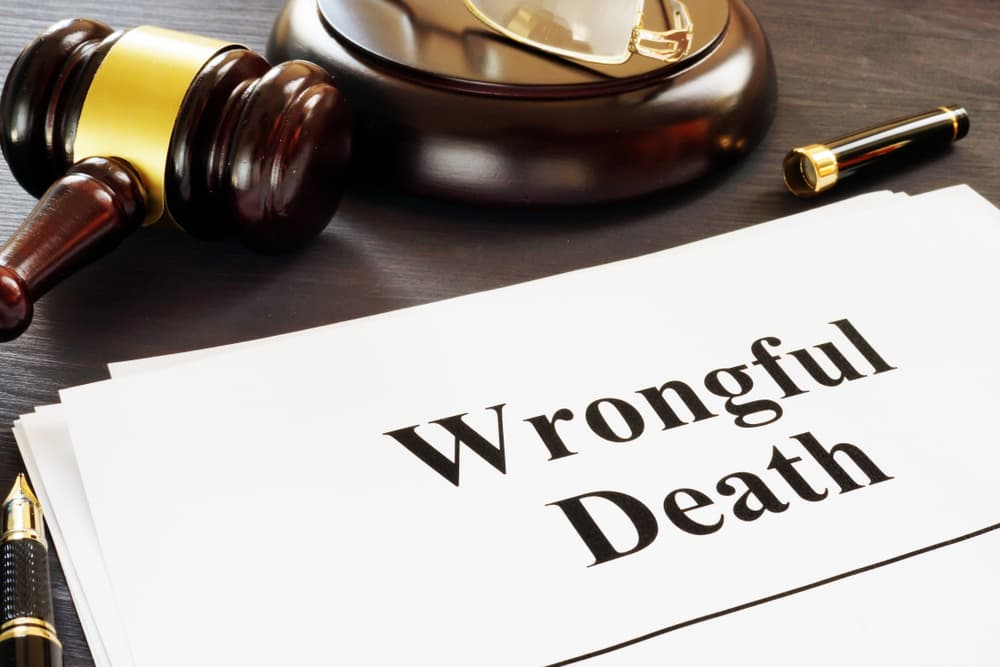What Is the Wrongful Death Statute of Limitations in Texas?

The statute of limitations for wrongful death in Texas is two years from the date of the death. That means surviving family members have two years from the date of their loved ones to file a wrongful death claim in Texas civil court. If you fail to file a claim within this time frame, you cannot seek compensation through the court system.
Some exceptions to this rule can shorten or lengthen the time you have to file a wrongful death claim. If you lost a loved one due to someone else’s negligence or wrongdoing, consult an Austin wrongful death lawyer so you don’t miss any important deadlines.
What Is a Wrongful Death Claim?
A wrongful death claim is a legal action brought by the surviving family members or beneficiaries of a person who has died due to the negligence, intentional misconduct, or wrongful act of another party. A wrongful death claim seeks compensation for the losses and damages suffered by the survivors because of the death.
Wrongful death claims can arise from:
- Car accidents
- Motorcycle accidents
- Pedestrian accidents
- Drunk driving accidents
- Workplace accidents
In a wrongful death claim, the plaintiffs typically need to prove that the defendant’s actions or negligence directly caused the death and that the surviving family members have suffered damages. Damages in a wrongful death case may include funeral expenses, medical expenses, loss of financial support, loss of consortium, and emotional distress.
When Does a Wrongful Death Statute of Limitations Start?
The timeframe for filing wrongful death cases varies by state. In Texas, the statute of limitations for wrongful death is the same for most any other personal injury claim based on negligence — two years from the date of the accident.
This would be the same as a wrongful death case if the accident victim died on the same day as the accident. But, if the accident victim survived for a few days or weeks and then died from their injuries, the clock wouldn’t begin ticking until the day they died.
Exceptions to Texas Wrongful Death Statute of Limitations
As mentioned above, there are certain circumstances when the time frame for filing a wrongful death claim may change. For example:
The Wrongful Act Does Not Immediately Appear
If the cause of death was not immediately apparent, the discovery rule may come into play. In such cases, the statute of limitations may begin when the surviving family members discover or reasonably should have discovered the cause of death.
The Victim’s Surviving Family Member is a Minor Child
If a minor loses a parent, and another parent or guardian doesn’t file a wrongful death claim on behalf of the minor child, then the statute of limitations won’t begin until the child turns 18. At that point, they will have two years — or until their 20th birthday — to file a wrongful death claim.
The Negligence was Concealed
If the defendant engaged in fraud or concealed information relevant to the wrongful death, the two-year clock to file a wrongful death claim does not begin until the surviving family learns about the fraud.
Texas Statute of Repose for Wrongful Death Claims

The statute of repose creates another deadline for wrongful death claims. The statute of repose sets a maximum period after the wrongful act or event to initiate a lawsuit. In other words, the statute of repose sets the final deadline for filing a claim.
Statutes of repose are distinct from statutes of limitations, which also dictate the time within which you must initiate a legal action. While statutes of limitations typically start running from the time you discovered or should have discovered the injury or harm, statutes of repose start from the occurrence of the alleged wrongful act, regardless of when you discover the harm. In Texas, the statute of repose for a wrongful death claim is 10 years from the date of the death.
Why Does Texas Have Statutes of Limitations and Statutes of Repose for Wrongful Death Cases?
Statutes of limitations and statutes of repose establish time limits within which plaintiffs must take legal actions in wrongful death claims. Here’s how these legal concepts apply to wrongful death claims:
Preservation of Evidence
Prompt legal action preserves evidence in wrongful death cases. As time passes, evidence may deteriorate, memories may fade, and witnesses may become unavailable. Statutes of limitations encourage timely legal proceedings to ensure the integrity of the evidence.
Legal Certainty and Finality
Statutes of repose and statutes of limitations provide a degree of legal certainty and finality. Statutes of repose set an absolute deadline for filing a lawsuit, often unrelated to the discovery of an injury or its cause. Once this deadline passes, even if you discover the injury or cause of death later, they extinguish the right to bring a lawsuit.
Balancing Interests
These statutes aim to strike a balance between the rights of individuals seeking legal redress and the need for legal stability and predictability. They acknowledge the societal interest in resolving legal disputes promptly to prevent claims from lingering indefinitely.
Encouraging Swift Resolutions
Statutes of limitations and repose encourage prompt resolution of legal disputes, promoting efficiency in the legal system. This benefits both plaintiffs and defendants by fostering the timely resolution of claims.
Protecting Defendants
These statutes also protect potential defendants from facing legal actions related to events that occurred too far in the past. This protection is particularly relevant in wrongful death claims where memories can fade, evidence can disappear, and the ability to mount a case may diminish over time.
Who Can File a Texas Wrongful Death Claim?
Only certain people may file a wrongful death claim in Texas. This includes:
- Spouses
- Children
- Parents
If the decedent has no surviving spouse, children, or parents, the executor of the deceased’s estate can file a claim.
What Compensation is Available to Surviving Family in a Wrongful Death Claim?
Wrongful death claims seek compensation for the losses and damages that the surviving family members have suffered due to the death. This includes:
- Financial Losses: This may include the loss of financial support that the deceased would have provided to the family. This can encompass lost income, benefits, and other forms of financial support.
- Funeral and Burial Expenses: Wrongful death claims often seek compensation for the costs associated with funeral and burial arrangements.
- Loss of Companionship: Survivors may be entitled to compensation for the pain and suffering and loss of companionship resulting from the death of their loved one.
- Mental and Emotional Anguish: Surviving family members may be eligible for compensation for the emotional distress they suffered due to losing their loved one.
- Medical Expenses: If the deceased incurred medical expenses due to the incident leading to the wrongful death, survivors may include them in the claim.
- Punitive Damages: In rare cases, the court may award punitive damages to punish the responsible party for particularly egregious conduct and to deter similar behavior.
Family members typically need to establish the liability of the responsible party and demonstrate the extent of their losses to pursue a successful wrongful death claim. Consult an attorney experienced in wrongful death cases to navigate the legal process and understand the specific requirements for filing these claims.
Consult a Lawyer About Your Wrongful Death Claim

Ted R. Lorenz, Austin Wrongful Death Lawyer
You need a lawyer who understands the wrongful death statute of limitations in Texas to seek justice for the loss of a loved one due to someone else’s negligence. Time is of the essence, and an experienced personal injury lawyer can navigate the legal complexities and challenges.
If you lost a loved one due to the negligent or wrongful acts of another person and are unsure about your legal options, consult a personal injury lawyer so you don’t miss any important deadlines. The dedicated team of personal injury attorneys at Lorenz & Lorenz Accident & Injury Lawyers PLLC, is committed to providing compassionate support and expert guidance throughout the legal process. Don’t delay seeking the justice and compensation your family deserves.
Contact us today for your free and confidential consultation, and let us help you navigate the legal intricacies and pursue the justice your loved one deserves. At Lorenz & Lorenz Accident & Injury Lawyers PLLC, we aren’t just legal advocates; we are compassionate allies ready to stand by your side during this difficult time. Your rights matter, and we’re here to ensure they are upheld with the diligence and expertise your case deserves.
